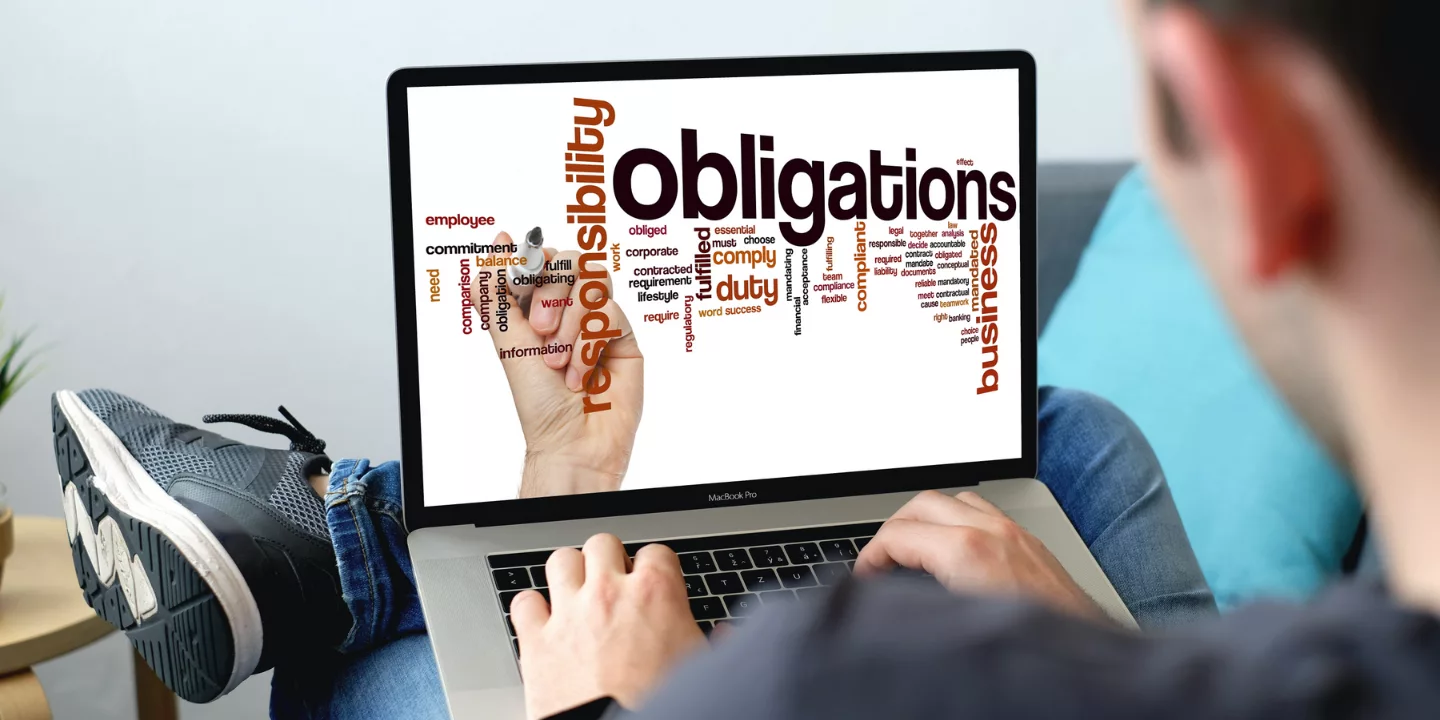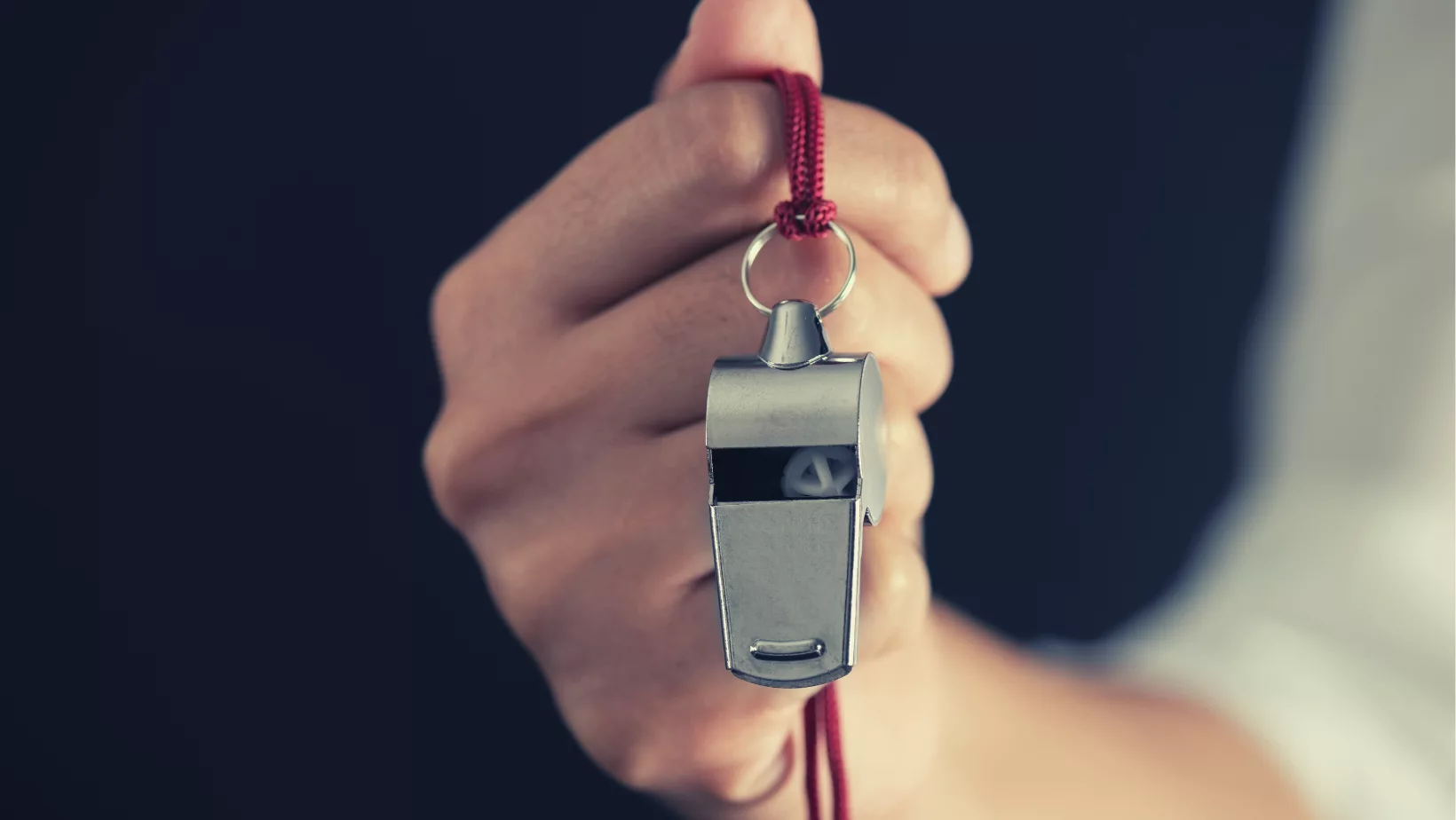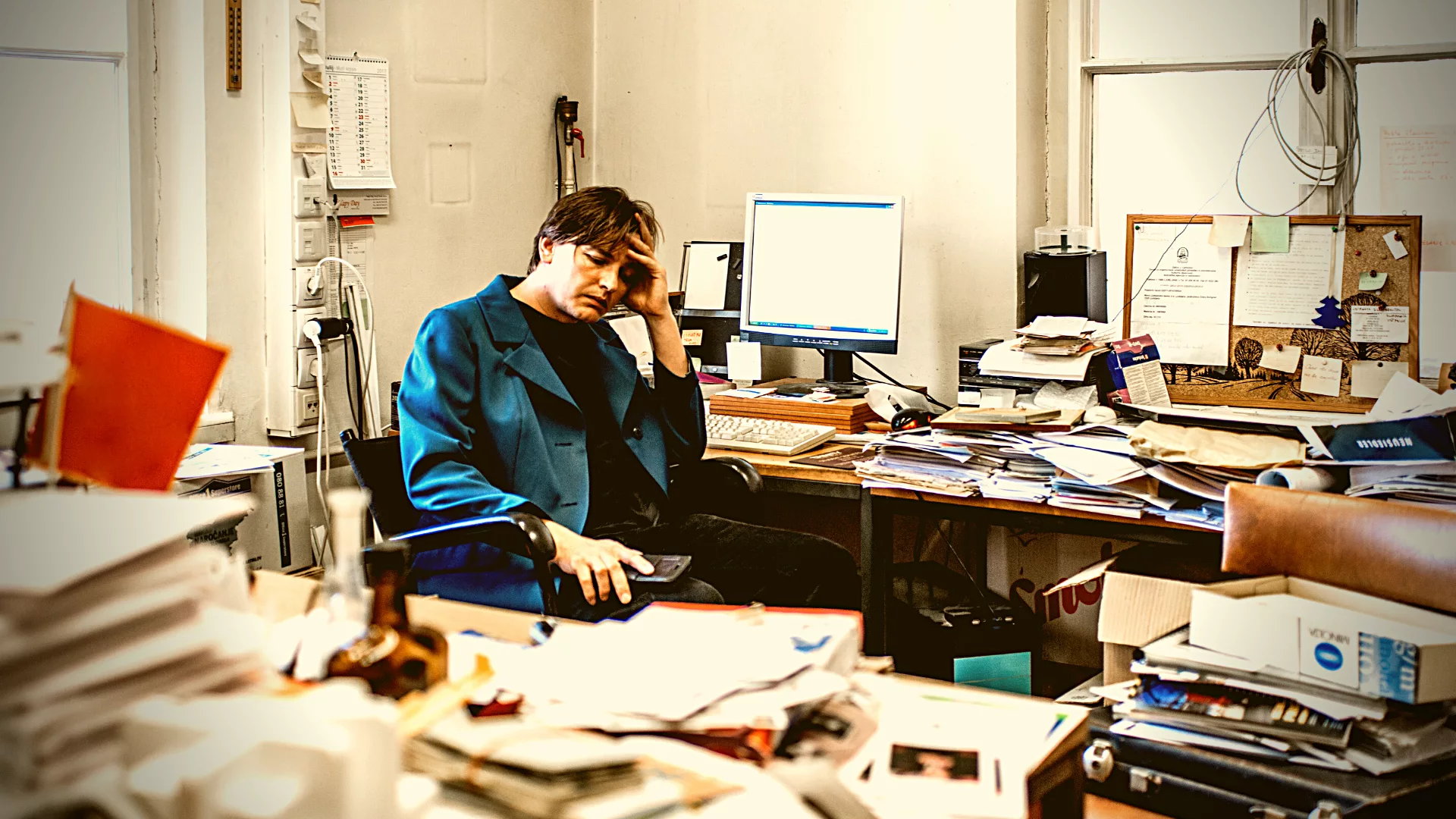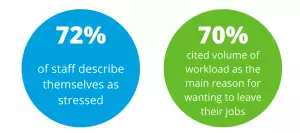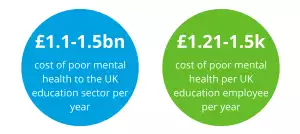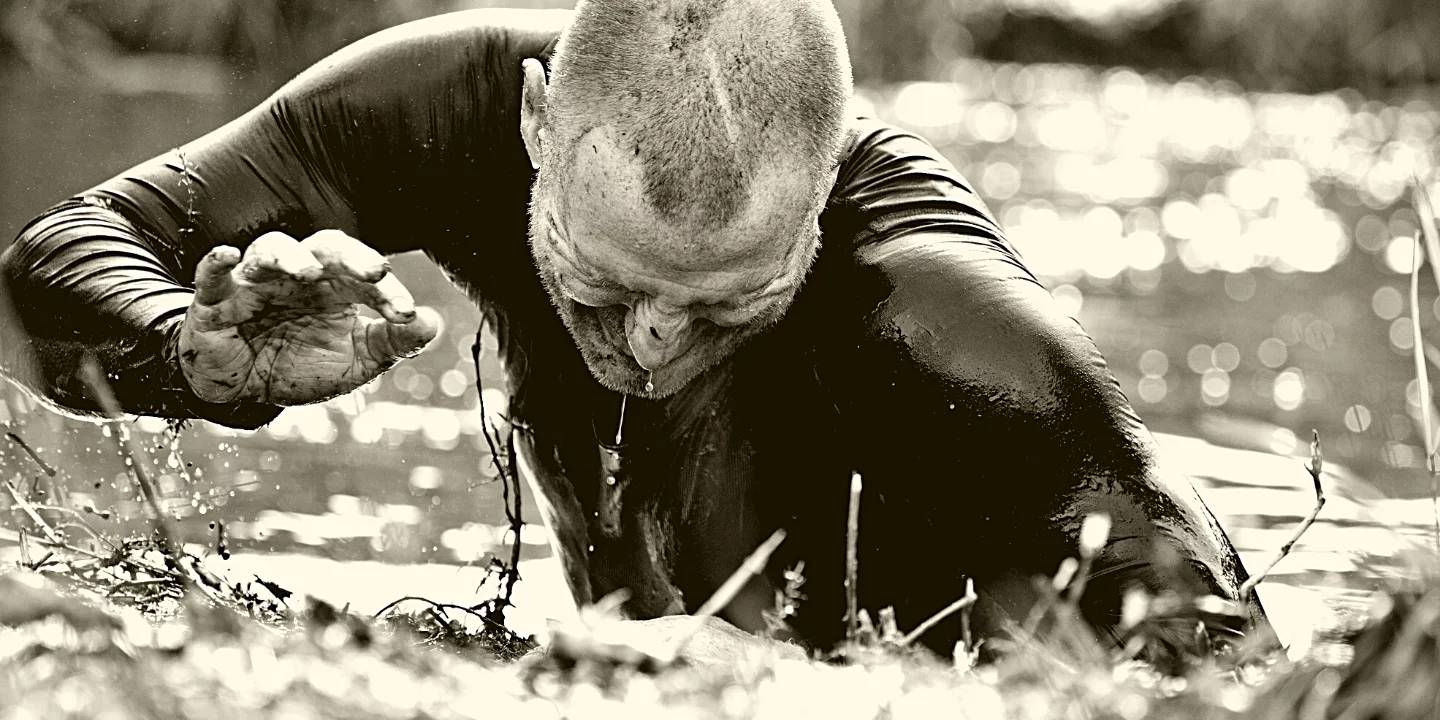Time Management
Are your good habits going bad? Try scenario planning...
Are your good habits going bad? Try scenario planning...
By Karen Amos
In a couple of recent blogs, I introduced techniques to check in on yourself when setting new habits for a positive work-life balance. (See the end of this blog for links.)
I’d like to introduce a third tool to help you set habits that stick. This is one to overcome all those problems and barriers and just general pesky ‘life in general’ stuff that crops up to derail all our good intentions.
At first, this approach can seem a bit negative coming from a coach – after all, we’re meant to be the ‘think positive and it will happen people’ aren’t we? Well, for one thing, I’m not into magical thinking, and for another, I’m a down-to-earth middle-aged Yorkshire woman, so like to take a realistic and more pragmatic approach to what actually works! And this does!
So what is ‘Scenario Planning’?
Scenario planning is a project planning/strategic thinking approach to identify things that may go wrong and derail your project or plan. It's a way to build in mitigating actions, which will give your plans more chance of staying on track.
How is this useful to build better habits?
We often start off setting new habits with really good intentions. We get off to a good start, fired up and raring to go. Then reality strikes. This might be a change in priorities with incoming work and deadlines, or even someone going off sick, meaning our workload changes. The result is, we have to change our plans and never quite seem to get back on track again.
So whilst it seems all doom and gloom to spend time identifying what could go wrong with our lovely positive plans, scenario planning can actually be the key to building in some longevity into our habits. If we know what might go wrong, we’re already prepared mentally and can often put in place mitigating actions to help ensure we’re not permanently derailed.
How does it work?
Here are a few coaching questions to help you get started. (Don’t spend too much time on this though - it's more important you crack on and take action. If you identify something new as you go along, you can always add it to the list later.)
- What might get in the way or impede my progress in embedding this habit?
- How likely is this to happen? (Try a scale of 0-5 - 0 = Definitely won't/5 = Definitely will)
- Are there any particular circumstances in which this would happen?
- Are there any things that happen at certain points in the year I need to take into account?
- What can I put in place to mitigate or remove the impact of this?
Hopefully you now have a good start to set habits that will stick. Remember, this tool can also be used for any plans you’re making, whether work-related, or personal.
I have a couple more blogs about Staying on track for a better work-life balance (HERE) and If and then... Setting the conditions for a better work-life balance (HERE), for more coaching questions to help you on your way.
If you would like support with your Time Management, Work-Life Balance or general wellbeing at work, call us on 07714 855757, or email [email protected]
Find out about our training courses and coaching using the links below:
Or why not EMAIL US, or book in an informal chat using the button below. We'll find out about the support you need and provide you with a no-obligation quote.
 Karen Amos is an executive coach and founder of BrightBird Coaching & Training. She supports business owners and managers who are feeling the pressure, to get the best out of themselves and their teams. She brings a practical, down-to-earth approach to improving working lives through better leadership, communication and working relationships.
Karen Amos is an executive coach and founder of BrightBird Coaching & Training. She supports business owners and managers who are feeling the pressure, to get the best out of themselves and their teams. She brings a practical, down-to-earth approach to improving working lives through better leadership, communication and working relationships.
If and Then… Setting the Conditions for Successful New Habits
If and Then… Setting the Conditions for Successful New Habits
By Karen Amos
I wrote in an earlier blog about a technique to check in on yourself when setting new habits for work-life balance. (Click HERE to read more).
I thought I’d share another great way to help build and maintain habits. This is to set ‘If and Then’ conditions to your actions.
Here are a couple of examples:
A few years ago I decided to start running to get fit. But…
If I got home from work and sat down with a cuppa… then I got comfy and didn't go out for my run.’
However…
If I got home from work, put down my bag and immediately put on my running kit… then I’d go straight out of the door and have my run.
__________________________________________
I also had a client who was wanting to lose weight to have a more healthy lifestyle by eating more fresh food. The problem was that…
If she did her food shopping after work when she was hungry… then she would also buy lots of junk food and chocolate at the same time.
However…
If she went food shopping in the morning, or had a healthy snack before shopping… then she didn’t have the food cravings and succumb to buying unhealthy food.
So here are a few tips to help build those habits:
- Set out your conditional ‘If and Then’ statements to identify where the problem lies (See the examples above)
- Set out an ‘If and Then’ statement that will overcome this problem
- Build this intention into your diary or to-do list, so you’re conscious of it at the beginning of the day
- Get an accountability buddy – whether it’s a colleague, friend, or family member – tell them your intention – you’re much more likely to take this action if someone else knows! This could even be an ‘If and Then’ itself!
If you’d like to find out more about building better habits, I have a couple more blogs about Setting up flags to know when you’re going off track (HERE) and Using Scenario Planning to Prevent Good Habits Turning Bad (HERE), with lots more coaching questions to help you on your way.
If you would like support with your Time Management, Work-Life Balance or general wellbeing at work, call us on 07714 855757, or email [email protected]
Find out about our training courses and coaching using the links below:
Or why not EMAIL US, or book in an informal chat using the button below. We'll find out about the support you need and provide you with a no-obligation quote.
 Karen Amos is an executive coach and founder of BrightBird Coaching & Training. She supports business owners and managers who are feeling the pressure, to get the best out of themselves and their teams. She brings a practical, down-to-earth approach to improving working lives through better leadership, communication and working relationships.
Karen Amos is an executive coach and founder of BrightBird Coaching & Training. She supports business owners and managers who are feeling the pressure, to get the best out of themselves and their teams. She brings a practical, down-to-earth approach to improving working lives through better leadership, communication and working relationships.
Ready to set a better work-life balance? Here’s how to stay on track…
Ready to set a better work-life balance? Here’s how to stay on track…
By Karen Amos
What is it about September? I get more of a giddy feeling and those ‘new start’ vibes than I do at the new year.
I guess it’s just the programming I experienced in my early years of starting back at school – new teacher, new clean text books to cover in really bad wallpaper… (Showing my age now!) and best of all, a new pencil case and stationery! (That’s still a biggie for me!)
The thing is, whether we’re working in education or not, this is a very popular time to make a 'new start'. The gym I attend is busier in September and October, everyone’s had a great summer holiday and people are ready to finally take control of that ever-elusive work life balance. Then reality kicks in, other people’s stuff becomes your stuff, the nights draw in, carb-rich food beckons and before we know it, we’re right back in our old, unhelpful habits.
So how to stop that slide?
I don’t believe it’s inevitable, but I’m not going to pretend it’s easy to do.
One key factor is being conscious of what’s going on. I wrote a blog post a while ago about boiling frog syndrome and that’s definitely one of the problems. (Click HERE if you’d like to find out more…)
Basically, boiling frog syndrome says if a frog is dropped in a pan of boiling water, (Yeah, I know, but don’t shoot the messenger, I didn’t invent the concept!) it will immediately recognise it’s too hot and jump out. But if we place the frog gently into luke-warm water and gradually warm it up, it will stay in the pan and boil to death, as it doesn’t recognise the water is too hot until it’s too late.
We too are that boiling frog. We fail to recognise when things are going awry until they’re having a detrimental impact on our time and wellbeing.
You know how it goes. You’re determined not to work every evening and weekend this time and you’ll definitely stick to your new healthy eating regime. But just one piece of work for a deadline on one Sunday evening, quickly becomes every evening and before you know it, you’re grabbing a handful of biscuits on the fly because you were too tired to make your healthy pack-up on a morning.
The solution? – Little Flags!
This is why I like to introduce my ‘little flags’ to clients. These flags are mini advance warning systems we can set in place when things are going well – i.e. right at the beginning of implementing our new habits. This means we’re in a good position to think clearly about the situation, without being overly influenced by outside influences and unforeseen circumstances.
Here are a few coaching questions to help you set out good habits and flags, ready for your new start:
- What is it that I would like to change?
- How will I know when I have succeeded? (What will be happening/ what will I be doing/hearing/seeing/feeling?)
- What are the ‘flags’ that will tell me I’m going off track? What will these be telling me?
- What action can I take to remove these now?
- What action will I take if one of my flags pops up to get back on track quickly?
I have a couple more blogs about Creating the Conditions to Succeed (HERE) and How to Prevent Good Habits Turning Bad (HERE), for more coaching questions to help you on your way.
If you would like support with your Time Management, Work-Life Balance or general wellbeing at work, call us on 07714 855757, or email [email protected]
Find out about our training courses and coaching using the links below:
Or why not EMAIL US, or book in an informal chat using the button below. We'll find out about the support you need and provide you with a no-obligation quote.
 Karen Amos is an executive coach and founder of BrightBird Coaching & Training. She supports business owners and managers who are feeling the pressure, to get the best out of themselves and their teams. She brings a practical, down-to-earth approach to improving working lives through better leadership, communication and working relationships.
Karen Amos is an executive coach and founder of BrightBird Coaching & Training. She supports business owners and managers who are feeling the pressure, to get the best out of themselves and their teams. She brings a practical, down-to-earth approach to improving working lives through better leadership, communication and working relationships.
5 Tips to Help You Switch Off From Work
5 Tips to Help You Switch Off From Work
By Karen Amos
I see a lot of posts on social media about people who find they can't switch off during the holidays. Is this you? Whether you're going away somewhere or having a break at home, the feeling that your long awaited holiday is finally here, but your mind's whirring like a machine and all you can think about is how many jobs there are to do when you get back - if not before!
As a note of reassurance here, you're not alone. The pace of the working week can seem relentless. For some the 'end of the (working) day' never really comes, particularly with the advent of home-working. This means we're living in an 'Always On' state of high arousal levels and stress.
In simple terms, this means rather than your adrenaline response shutting off, allowing your stress to ebb and flow naturally, your brain has its foot on the gas pedal and keeps it there. This response is supposed to be fleeting - just long enough for you to get yourself out of imminent danger. In the case of workplace stress, it can remain in place. For months sometimes. This leaves your body and brain unable to simply flick the switch to turn off the response, even though it's not needed any more.
So what to do? Here are a few tips and coaching questions to help train your brain to lift its foot off your stress gas pedal, so you can work and rest productively. Remember, the aim isn't to solve all of these in one go. No point ending up more stressed out by trying to fix your stress levels! Instead, pick one area and take one small action at a time...
Tip #1:
See time off as an investment - Explore and clarify to yourself how you will be more productive if you take time off to rest, whether that's for an evening, a weekend or a holiday. Set out clearly what you would gain - naming it makes all the difference, then you know what you're aiming for.
Tip #2:
Make a list of everything that needs to be done - Include everything, big or small. This allows you to stop worrying that you’ve forgotten something and allows you to stop spinning those mental plates. Remind yourself you can add any jobs, when they come into your head as you go along.
Tip #3:
Prioritise what needs to be done – Do a reality check and ask yourself - Is this thing possible? – is it essential? – Also ask yourself what would happen if this wasn’t completed before the end of the month, or if you were off sick? Chances are most of these tasks will be less 'urgent' and 'important' than you feel they are right now. Where you can, block out things into a basic timescale or planner.
Tip #4:
Switch off your media – This means no checking in on emails and social media. Give yourself a digital detox and if you find this makes you anxious or you have such strong ingrained habits to pick up your phone, put your phone or laptop out of reach at least for a short while.
Tip #5:
Find something practical to do – If you engage in a practical activity, you're more likely to be distracted from the anxious feelings, at least for a while. Get outdoors for some exercise. Not only is this a great stress-buster, it will also help you to sleep. Whether it's indoors or outdoors, book activities in that you enjoy and revel in that restorative distraction. Why not catch up with friends and family too? Having a laugh and talking with others is a great distraction. Just stick to those positive people in your life and avoid the 'joy stealers'!
Hopefully, these will help you set some positive habits and ensure you have some quality time off so you're well-rested and on top of your game when you return to work. In the meantime, here's wishing everyone a positive and productive month, no matter what you have planned!
Find out about our training courses and coaching using the links below:
Or why not EMAIL US, or book in an informal chat using the button below. We'll find out about the support you need and provide you with a no-obligation quote.
 Karen Amos is an executive coach and founder of BrightBird Coaching & Training. She supports business owners and managers who are feeling the pressure, to get the best out of themselves and their teams. She brings a practical, down-to-earth approach to improving working lives through better leadership, communication and working relationships.
Karen Amos is an executive coach and founder of BrightBird Coaching & Training. She supports business owners and managers who are feeling the pressure, to get the best out of themselves and their teams. She brings a practical, down-to-earth approach to improving working lives through better leadership, communication and working relationships.
3 Reasons Everyone Needs a Coach
3 Reasons Everyone Needs a Coach
By Karen Amos
As Bill Gates said… ‘Everyone needs a coach.’ And who am I to argue? I mean, the lad’s done OK for himself hasn’t he?
As a coach, I’m often asked, ‘Do you have a coach?’ The answer is, ‘Yes, I have several coaches.’
I have coaches for various aspects of my life and work, depending on what I need. For example, I have a long-standing coach supervisor who supports and challenges me to improve my own practice as a coach. I’ve also had business and personal coaches at critical points.
I’m writing this blog, as I had a realisation this morning I needed more coaching. This time it’s for physical fitness. Some of you may know I had a hip replacement in the spring. It was successful and I’m now getting my life and mental wellbeing back, being able to walk up my beloved mountains and get the space, peace and exercise I so need. (Even though I do spend a disproportionate amount of time asking myself what on earth I was thinking, when finding myself on a steep slope in the pouring rain!)
So back to my fitness coaching. Most people understandably assume that as a coach myself I’m hyper-motivated all the time and know all the nifty coaching techniques to successfully coach myself to whatever goal I choose. Which is kind of true, but here’s the problem – I’m only human.
That being human means that sometimes I can be a bit defeatist and even, dare I say it, a bit lazy. Yep, let’s face it, we all have our excuses ready from time to time don’t we?
To quote another famous sleb, ‘You can have what you want, or you can have your excuses.’ That one’s from good old Arnie and again, he seems to have done OK for himself too!
“YOU CAN HAVE WHAT YOU WANT OR YOU CAN HAVE YOUR EXCUSES”
So, with all that in mind, I’ve called my gym coach to discuss returning to paying her to allow me to complain, swear and turn into a sweaty mess for a couple of hours a week – otherwise known as gym classes.
Now, I have all the equipment at home and knowledge of training routines to crack on and get my fitness up to scratch again, so why don’t I just do that? Well, the same reasons I would recommend a coach for anyone at work, applies to me too.
1. Challenge
Your coach, whether that’s a leadership, fitness, business or any other type of coach, will push you out of your comfort zone. That ‘un-comfort’ zone is where the change that needs to happen, does happen.
Let’s stick with fitness as an example – you start off with great intentions, but within a very short space of time, you revert back to what’s comfortable. That’s just human nature – it’s how we’re wired – but to get meaningful change we have to enlist someone who’s going to challenge us. This is vital, whether that’s to do that extra set of reps with the weights, or to make that scary decision we’ve been putting off.
The important thing about challenge in coaching is that it’s done with positive intentions and to serve the agenda and goals of the coachee. This isn’t about the coach getting off on how uncomfortable they can make their clients. Any old dictator can do that!
2. Mindset
This goes along with the challenge. A good coach will help you envisage a step-up bigger than you would normally take yourself. They don’t take ‘no’ for an answer and will help you build a positive, can-do, growth mindset, not based on wishful thinking, but on affirmative, tangible action and results.
In short, a good coach helps you get out of your own way.
3. Accountability
Commitment makes or breaks success. Doing something once, however well will not bring you lasting success (even if that one thing is buying a winning lottery ticket. With the wrong mindset, you’ll have blown it in no time). As the US coach Tony Robbins describes, we need to take small, consistent steps to maintain lasting change.
Working with another person is a fantastic way to help build personal accountability. This is particularly true if you’re a senior leader or business owner, or even if you’re doing something for you, such as starting a new fitness programme.
The fact is, stating an intention out loud, particularly to someone whom you respect, means you are much more likely to follow through on your actions. Let’s face it, none of us like to be proved wrong, or wanting do we?
Additionally, paying for this means we feel we have personally invested something. We have skin in the game. It’s an uncomfortable fact, but this is why ‘free’ programmes often fail and have much fewer participants at the end. There’s just not enough investment personally from the participants. Not enough to lose. This way, we’re much more likely to dig deeper – if you’re a born and bred Yorkshire woman like me, you’ll always want to get your money’s worth! This inevitably means better results.
So the question is, how and from whom can you get the right level of challenge, positive mindset and accountability?
Hopefully that’s given you some insights into why all good coaches have coaching. Why not give it a go? After all, think of how much you could gain…
Check out the links below to find out more about our latest coaching-based training courses and programmes. We also offer individual and team coaching on leadership and performance matters.
For schools and education settings
For business and organisations
Or call us: 07714 855757
or click HERE to book in a short, no-obligation chat
Karen Amos is an executive coach and founder of BrightBird Coaching & Training. She supports leaders and managers to get the best out of themselves and their teams. She brings a down-to-earth, practical approach to improving working lives through better leadership, communication and working relationships.
3 Reasons Everyone Needs A Coach
Feeling overloaded? The solution might not be less work...
Feeling overloaded? The solution might not be less work...
By Karen Amos
I’ve just had a couple of interesting sessions with clients, exploring how to create capacity within their organisation and their life in general. Many of us know the feeling of being up to, if not over capacity and the stress, pressure and often anxiety this brings. It’s almost a fact of modern working life - that feeling there’s just no wriggle room and that you daren’t even think about what happens if one more thing goes wrong, or there’s a bout of sickness or a resignation.
I’m a coach not a magician, so I can’t manifest time that doesn’t exist – although it wouldn’t be a bad superpower would it? What I can do often feels a little magical though in the turn-around it brings people, but there’s no woo-woo involved – I simply help my clients find clarity.
Often when I start working with clients, particularly around any ‘Time Management’ type issues, they expect me to do the usual, ‘Prioritise your tasks… delegate…, etc., etc.’ There's very much a time and a place for these tools and I frequently use these along with other time management techniques, this usually isn’t my starting point.
The fact is that most time management issues stem from a mindset issue. This is a kind of good news/bad news situation though.
The bad news is that this means the root of the problem lies with how you view it, so no blaming other people for your problems. You know, the whole, 'My boss is so mean to me' routine. A bit harder to do when you're self-employed mind.
The good news is that simply changing how we think, can completely transform our situation.
When I work with my clients, we look at what’s going on… then look at what’s REALLY going on! That’s the key to coaching – getting right down to the root cause of the problem. We often find this too difficult to do on our own, as we’re viewing the world through a filter of our emotions, values, experiences and expectations. A good coach will help you work out exactly what your pressure points are and also your priority outcomes. (Hint – we often confuse activity with outcomes and these really, really are not the same thing!)
One of the questions I often ask my clients is:
What would change if you accept the fact there will always be too much to do in any given day/ week/ month/ year?
Along with:
What would you do differently if you believed your wellbeing and happiness was just as important as everyone else’s?
By asking these types of questions, I can bring a fresh pair of eyes for my clients, helping them make decisions and create the space they need to work on the stuff that really counts. So to paraphrase that paragon of Stoic philosophy, Marcus Aurelius, the difficulty is often not what's going on around us, but our response to this.
If you'd like to find out how our 1-to-1 coaching programmes can help you get 'unstuck' and move forward this year...
Call us: 07714 855757
or click HERE to book in a short, no-obligation chat
Karen Amos is an executive coach and founder of BrightBird Coaching & Training. She supports leaders and managers to get the best out of themselves and their teams. She brings a down-to-earth, practical approach to improving working lives through better leadership, communication and working relationships.
Overwhelmed with work? Treat your to-do list as if you were going on holiday...
Overwhelmed with work? Treat your to-do list as if you were going on holiday...
By Karen Amos
Is your workload stressing you out right now?
If so, I’d say you’re in good company. So many people are saying they’ve too much to do and not enough time to do it in. On top of this, there’s the added pressure of the summer holidays. Of course, this is doubly significant for those working in education with end of term looming – but it also applies to anyone who has a break booked, but doubts whether they’ll make it in one piece due to the amount tasks they’re facing.
So before we look at what we can do to manage this, let’s do a quick reality check (Magic wands and wishful thinking are very nice, but some things are just fact – albeit slightly uncomfortable ones!).
FACT #1 – There will always be too much work and too many things to do in any given day, week, month, eternity…
FACT #2 – No matter how motivated, or how good your intentions are, you only have a finite amount of energy. (Sorry to be the bearer of bad news, but you are not a robot!)
FACT #3 – Much of the pressure we feel is artificially created. It comes from other people, or worse still ‘systems’ and cultures, that we leave unquestioned.
FACT #4 – The more tired and stressed you get, the more ineffective and unproductive you become.
OK, so that’s all the doom and gloom stuff, but does that mean we’re all destined for a life of unproductivity and angst? Absolutely not! And the good news is that so much more is in your control than you may believe.
This is why I believe we should take the ‘One week to my holidays’ approach to managing our workload…
So here’s how it usually goes over your last 5 working days:
Day 5 – You’re full of good intentions about how you will clear all those pesky jobs that have lurked on your to-do list all year. That way you can go on holiday with a clear conscience, self-congratulating at all the amazing work you’ve smashed this week…
Day 4 – You’ve tripled the length of said to-do list, but haven’t actually done a single thing, other than fire-fighting more tasks that weren’t even on there.
Day 3 – You realise that half of these tasks will take at least a week each, so decide to put them off until after your holidays (or even next year!).
Day 2 – You’ve ditched 80% of your original tasks and are now prioritising the the things that will cause disaster/mayhem/get you the sack if you don’t do them…
Final working day – You’re ditching tasks from that list with abandon (many of which will never find their way back onto it, even though you were convinced were non-negotiables three days ago). You’re becoming slightly delirious and demob-happy and start doing the bare bones of what’s needed and seem to have forgotten about your perfectionist tendencies after all…
Sound familiar? I know it well!
So if those tasks were so important in the first place, why do some become more negotiable/optional the more time-pressures exert themselves?
Usually it’s because they actually weren’t so important. They were wishes, they were unplanned and they were good intentions (and we all know what the road to hell is paved with…).
That’s why we should be grateful for that last-minute panic before our holidays. It helps us shine a light on what’s really important and also what our day is actually filled with.
Here are some coaching questions to help you see your workload in a new light:
1. Realistically, how long will these tasks take me with no distractions?
2. What would I advise the people I line manage if they presented me with this to-do list?
3. What needs to change in order to achieve the more strategic stuff, or the things that will make a difference?
4. What 3 things can I put in place quickly and easily to cut out distractions and fire-fighting?
5. Who are the key people around me who can help me with this?
Hopefully, you’re now able to give yourself permission to take a fresh view of that never-ending to-do list and have a wonderful, restorative holiday!
If you’d like to find out more about our training courses and programmes on time-management, work-life balance and wellbeing please get in touch. We also offer individual and team coaching on leadership and performance matters.
Call us: 07714 855757
or click HERE to book in a short, no-obligation chat
Karen Amos is an executive coach and founder of BrightBird Coaching & Training. She supports leaders and managers to get the best out of themselves and their teams. She brings a down-to-earth, practical approach to improving working lives through better leadership, communication and working relationships.
Your Christmas Coaching Survival Guide...
Your Christmas Coaching Survival Guide…
By Karen Amos
So here it is – my coaching guide to surviving Christmas!
When I say ‘Christmas’, I’m talking about the general Christmas celebrations we have in the UK, not the religious festival. I do feel these are two markedly different things.
So how did it all get so out of control?
There are reports of Christmas being commercialised since the late 1800’s and perhaps even before, so it’s not necessarily a ‘new’ thing. Santa had been illustrated as dressed in red in the mid 1800’s, but Coca Cola famously linked Santa to its brand colours. The reason? It was difficult to sell fizzy drinks in winter! We’re now in the situation where parents take their children to see the Coca Cola truck and ‘ooh’ and ‘aah’ at the spectacle. Well that clearly worked didn’t it?
The 1947 film Miracle on 34th St is basically about the over-commecialisation of Christmas in a store. Did you know that even Rudolph the red-nosed reindeer was invented in 1939 by another department store to sell merchandise?
So, this retail extravaganza really isn’t that new – along with the stress that we associate with the build up.
The evergreen Christmas stress is tough enough without all the financial concerns people are now having. So, if the thought of Christmas is causing you more stress than pleasure, this is the perfect opportunity to do something different and have the Christmas you really want.
I say this as someone who took charge of their Christmas years ago. I got tired of the retail-obsessed, drink-and-eat-all-you-can-fest, so started my own tradition of going to the Cairngorms for Christmas. My husband and I have one low-key ‘Christmas do’ with our family before departing to the Highlands in our campervan. We walk in the snow on Cairngorm summit on Christmas morning, before having an expensive bottle of wine and tapas and other nibbles for Christmas ‘dinner’.
Lots of people say they are jealous of us being able to do this, but they could just as easily do this themselves if they chose. It’s completely in anyone’s gift to change.
But it’s not that easy?
My advice is to think about your absolute ‘must have’s’ for Christmas – what’s really important? It’s unlikely to be a cuddly toy vegetable from a discount supermarket, or a huge credit card bill and a 7-day hangover!
Here’s a great coaching question to take a step out of your usual mindset:
‘If I could do anything I wanted at Christmas – what would I be doing?’
Your ‘dream’ Christmas may not be possible, but often it’s nearer than you think.
Once you’ve answered this question, pick out the elements that make Christmas special for you, what’s given you joy in the past – and also which bits would you gladly bin!
Then work out all the ways, including seemingly impossible ones, to make this happen.
It often helps to do this with someone else, so they can help you find the solutions and work-arounds.
A big fear is that family and friends will be upset or offended if you’re not doing what they want, so remember:
#1 – You can’t control other people – just yourselves.
#2 – There may be ways you can spend time with family and friends, but in a way that still meets your needs.
#3 – Even if some people are disappointed, they’ll get over it! Let’s face it, by new year, Christmas is already a distant memory for most people.
#4 – Stick to your guns if you’re doing something radically different. Once you’ve made the change, it’s much easier in future to continue with this.
This was definitely the case on our first year going to the Cairngorms, but now everyone expects us to do this and it’s no big deal.
If you’re worried about what other people will think, or have some ‘shoulds’ or ‘oughts’, ask yourself ‘who says?’
And what will actually happen if you don’t do it everyone else’s way? The answer is usually ‘not much’.
Another idea for changing things is to give your Christmas a theme – for example, you could hold an ‘eco Christmas’ where you waste as little as possible, or a ‘sharing Christmas’ where everyone pitches in, or even a ‘charity donation Christmas’.
Think about ways you can make this transition:
- Buffees instead of huge meals
- Everyone brings something
- Everyone brings their own glasses
- A Secret Santa where you just buy one present for each member of the family
- Going out for a walk instead of a huge drinking session
- ‘Buying’ a grand day out to be used later in the year, instead of shop-bought gifts – we found our elderly parents would much prefer a special day out, than yet more ‘stuff’ they don’t need!
Just remember – the constant messages we see and hear are designed for one thing – to help businesses part you from your cash.
I have a business too – I get it – and there’s nothing wrong with buying a nice gift for someone. Let’s just do it in a way that makes everyone happy.
What are your top tips for a stress-free Christmas?
Check out our Positive and Productive Wellbeing programme for schools. We offer many more coaching tips and approaches to help you manage your time and stress and build a positive mindset. CLICK HERE to check out our web page for more info, or to book.
Or call us for a no-obligation chat on: 07714 855757
or email: [email protected]
Karen Amos is an executive coach and founder of BrightBird Coaching & Training. She supports leaders and managers to get the best out of themselves and their teams. She brings a down-to-earth, practical approach to improving working lives through better leadership, communication and working relationships.
Your Christmas Coaching Survival Guide...
Does your wellbeing strategy add to your stress?
Does your wellbeing strategy add to your stress?
By Karen Amos
Are you working in education? Are you feeling under pressure, stressed, or that your general wellbeing just isn't that great? You probably already know this, but I'll say it anyway - you're not alone. BUT WAIT! Whatever happened to the Education Staff Wellbeing Charter? After all, it was only launched in Autumn 2021 and who doesn't love a new initiative...?
Thinking back to my time in leadership roles in the public sector, the NHS in particular, I can remember that sinking feeling when yet another ‘initiative’ landed on my desk. Not that they were always bad (although to be fair, some were shockers), but I recall that feeling of overwhelm, wondering where and how I could find the resources and time to actually implement this, without dropping another plate.
I’m not going to tell anyone working in education that they have a tough job. That’s like telling a sheep it’s woolly. There’s a degree of acceptance of an education professional's lot in working life – and by this I’m meaning everyone working in education, not just teachers - and to corrupt a song, 'a teacher's lot is not a happy one'. The fact is the statistics make grim reading.
I don’t believe there’s anything to gain in playing misery ‘top trumps’ with other jobs and sectors. This doesn’t get anyone anywhere. Many sectors have huge issues with stress and burnout, each with its own particular issues and education is no exception. The fact is however, that education does rank in the top 4 most stressful occupations in the UK. ¹
So here are some numbers:
- 72% of education professionals described themselves as being ‘stressed’ in 2021 (84% of senior leaders)2
- Unsurprisingly, this was up from an already high 64% in June 20202
- 70% of Education staff (80% of senior leaders) who considered leaving the profession did so due to workload2
- 54% considered leaving due to personal mental health and wellbeing2
I believe this is the tip of the iceberg and that the issue is significantly under-reported for many reasons. If you have time, do check out the links below for more information. (Short pause for you to laugh derisively at the word ‘time’…)
From a leadership view, I see there are two issues with wellbeing in the workplace.
Firstly, there’s an ethical issue. No-one should come to work and be made ill or unhappy. That’s my mantra. I have personal (negative) experience in this area. We can all have a rubbish day from time to time, but if we’re accepting this as the norm, then something’s seriously broken.
Secondly, there’s the financial issue - and let’s face it, this is often the deal-breaker. Few would argue against the ethics of having a healthier workplace and workforce. The difficulty lies in implementing this – either though lack of time and resources, or simply the financial pressures of balancing already stretched budgets.
NB: Whilst there’s also a legal/compliance issue with wellbeing, I’d suggest this comes from a combination of ethical and financial (i.e. costs to the state) issues.
So, if the finances are the clincher, here are a few more stats:
- 50% of all working days lost in the UK in 2020/21 were due to work-related ill health1
- Education is one of the top 3 most stressful sectors in the UK 1
- Poor mental health amongst employees costs £42–45 bn in the UK each year - This includes the costs of absence/presenteeism and turnover3
- The cost of poor mental health to the UK education sector (and public purse) is estimated to be £1.1 – 1.5 bn per year3
- This equates to £1203 - £1585 per education employee per year3
So what to do?
Whilst there’s lots everyone can do to improve wellbeing in education, it’s obvious there is no quick fix and I’ll be writing more extensively on this in future articles. In the meantime however, we should take note of the Education Staff Wellbeing Charter4 , where it states that there are no expectations that ‘managers [will] provide professional wellbeing support for which they have no professional training.' In short - you can't be all things to all people.
Instead, I suggest we should take a holistic view, rather than the traditional sticking-plaster approach. This will take time and starts with building a wellbeing culture. To do that we need to throw away any badges of honour that go with working ridiculous, impossible hours and begin meaningful conversations with those around us. This means we have to be prepared to hear uncomfortable truths. Additionally, it’s now time to check our own personal story - from one that talks about ‘overworked education professionals', to one that says ‘This is not acceptable’ and ‘I deserve more’.
- HSE – Work related stress, anxiety or depression statistics in Great Britain - 2021
- Education Support – Teacher Wellbeing Index - 2021
- Deliotte – Mental Health and Employers – Refreshing the case for investment – Jan 2020
- The Education Staff Wellbeing Charter
If you would like to find out more about BrightBird's online Positive & Productive Wellbeing Programme, click HERE.
Down-to-earth, straight-talking support for you and your team to manage stress, build resilience and time management skills and develop a positive mindset. Delivered at a time and pace to suit you.
For an informal, no-obligation chat about how we can help you, call us on 07714 855757, or email [email protected].
 Karen Amos is an executive coach and founder of BrightBird Coaching & Training. She supports education leaders and managers who are feeling the pressure, to get the best out of themselves and their teams. She brings a practical, down-to-earth approach to improving working lives through better leadership, communication and wellbeing.
Karen Amos is an executive coach and founder of BrightBird Coaching & Training. She supports education leaders and managers who are feeling the pressure, to get the best out of themselves and their teams. She brings a practical, down-to-earth approach to improving working lives through better leadership, communication and wellbeing.
Overwhelm - taking those first steps out of the swamp...
Overwhelm - taking those first steps out of the swamp...
By Karen Amos
The problem with overwhelm is... well, it's overwhelming!
Yes, I realise that's pretty obvious, but if it's really that obvious, why don't we easily sort it out and feel more in control?
Because... yes, that's right - it's overwhelming. The Cambridge dictionary describes overwhelm as 'to be too much to deal with'. (1.) So there you have it - how can you deal with something, which by definition leaves you feeling as if you can't?
Overwhelm sucks us down and dulls our responses and behaviours, sapping your energy and confidence. It's a swamp land for your productivity and wellbeing.
So here's how to deal with the stuff that feels like it's too much to deal with...!
1. Accept there is no 'one-step, easy answer' to overwhelm
Overwhelm means different things to different people, at different times. There are often several contributing factors, each of which compound the other. This is why we can't often find a way through - and why we often don't even know where to start. Acknowledging what's going on for you - and importantly, making a conscious decision to change things for the better is a great start though.
2. If you don't know where to start, start in the easiest place
Because overwhelm then leaves us powerless in its grip, we often do nothing. We don't know what the 'best' thing to do is, or what the solution is. So we do the rabbit in the headlights routine. Often though, just taking one small step can start to lift us out of the swamp. And each step out, increases our capacity to gain control, energy and impetus. So don't wait for the whole solution, just take the one small, easy step you know will lead you in the right direction.
3. Overcome the fear of switching off
Whilst we know we would benefit from taking proper time out, this can actually feel pretty scary when you're under pressure. The problem is that trying to plough through is often counter-productive, leaving us even more exhausted, but the bogeyman of letting go can really hold us in its grip. Rationalising how you will benefit from even a short amount of time out will help you make that decision. Remind yourself for example, how much more productive you will be the next day if you turn off your smart phone and have an early night, or even just finish work at a normal time for once, to go do something nice with your loved ones.
4. Break tasks and activities down
If we see a large, complex or long-term problem, it's hard to know where to even start - and the positive feelings of achievement aren't so easily found as we try to plough our way through. Instead, break your goals/outcomes down into smaller steps that you can tick off frequently. That way you can see your progress and more importantly gain the feelings of satisfaction and control that come with this. This is even true of smaller, personal habits - e.g. saying you're going to do physical exercise/training 3 times a week can seem too much and mean you don't even start. However, saying you'll go to spin class on Monday evening, do a 30 minute run on Wednesday and a long walk at the weekend can much more easily be planned in - and ticked off each day.
5. Get your priorities right
When we feel so overwhelmed with our workload, there's a danger that we end up working on completely the wrong things. These often swing between the jobs (or people) who shout the loudest, or the things that are easiest and least risky. Neither of these necessarily are the right thing though. (And if you think this isn't you, just remind yourself about the times you've ended up doing the dusting rather than tackle a gnarly task! Yeah, of course, we'd all choose dusting as our new favourite hobby right?!) Instead, take a few minutes to check through everything that's going on and ask yourself:
- What could and should be dropped off my to-do list (or even completely off my radar) at this point in time?
- Are there any quick wins here, that will buy me more time and energy moving forwards?
- What's the most important thing here?
- What are the things that no-one would really notice if I didn't do?
- If I assume I don't have time or energy to do everything that's expected of me, what will I have to put down first?
- Where's the 'noise' coming from? Is this legitimately something I should be listening to? If not, how do I tune it out?
If you were only going to do one thing right now, I'd recommend taking a few minutes away to ask yourself some of these questions. Then take one step - just one - that will start to take you in the right direction and lead you out of the overwhelm swamp.
References:
If you would like to find out more about how you and your teams can improve their time management and productivity, whilst minimising stress and overwhelm, check out our new Positive and Productive online programme.
For schools
For Business and VCSE organisations
For an informal, no-obligation chat about how we can help you, call us on 07714 855757, or email [email protected].
 Karen Amos is an executive coach and founder of BrightBird Coaching & Training. She supports under-pressure leaders and managers to get the best out of themselves and their teams. She brings a practical, down-to-earth approach to improving working lives through better wellbeing, leadership, communication and working relationships.
Karen Amos is an executive coach and founder of BrightBird Coaching & Training. She supports under-pressure leaders and managers to get the best out of themselves and their teams. She brings a practical, down-to-earth approach to improving working lives through better wellbeing, leadership, communication and working relationships.
- 1
- 2




